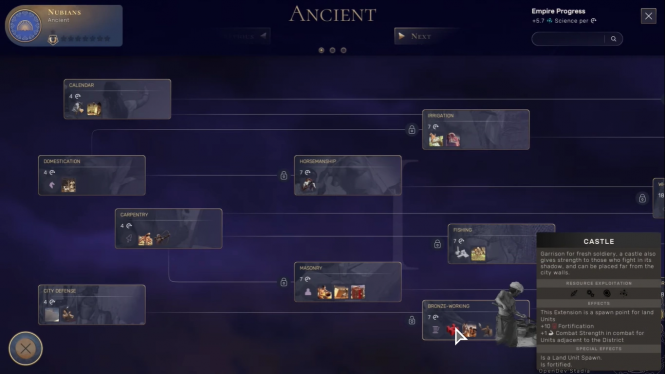
Robert Zubek, the author of "Elements of Game Design", has written a blog post about the tech tree differences between Humankind and Civilization 5. He first talks about the tech tree as a game mechanic device to simulate progress, and afterwards talks about the differences between the two games, mostly that Humankind's tech tree focuses way more on warfare than the Civ5 tech tree, while omitting other fundamental achievements of humanity.
An excerpt:
"In this tech tree, the arts and sciences are simply not a part of the model. They don't exist in the game world, they can't be researched, they're not part of human history at all. Instead, war technologies are first-class innovations, and must be researched in order to progress through history.
This is a very martial view of history, of what kinds of human developments are worthy of rememberance.
But this isn't the only way this could have played out. For instance, if we look at another game like Civilization 5 (which was a clear inspiration behind Humankind), its tech tree is very different. All the items I mentioned as missing, the various arts and sciences, show up there."
You can read the full blog post here: http://robert.zubek.net/blog/example-humankind.html
(The picture is availabe under CC BY-NC-SA 3.0, from Humankind Wiki: Technology)
